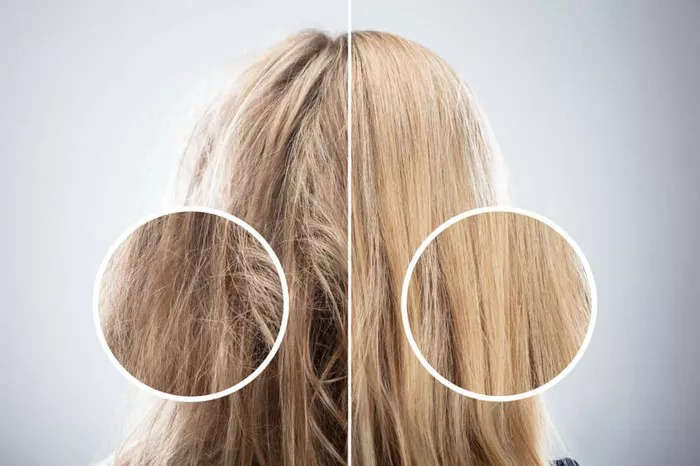Frizzy hair can be a frustrating challenge for many individuals, disrupting sleek styles and leaving locks looking unruly. Whether battling humidity, dryness, or simply unruly strands, finding the right anti-frizz treatment is essential for achieving smooth, manageable hair. With a plethora of products and techniques flooding the market, discerning the most effective solution can be overwhelming. In this comprehensive guide, we delve into the world of anti-frizz treatments, exploring various options and determining which reigns supreme in the quest for silky, frizz-free locks.
Understanding the Root Cause: Why Does Frizz Occur?
Before delving into anti-frizz treatments, it’s crucial to grasp the underlying causes of frizz. Frizziness often stems from a lack of moisture in the hair shaft, causing the cuticle layer to lift and allowing moisture from the air to penetrate, leading to swelling and frizz. Additionally, environmental factors such as humidity exacerbate frizz by disrupting the hair’s natural moisture balance.
Exploring Anti-Frizz Treatments: From Serums to Masks
1. Smoothing Serums:
Serums are lightweight, silicone-based formulations designed to coat the hair shaft, sealing moisture and creating a sleek surface. Look for serums enriched with ingredients like argan oil, coconut oil, or dimethicone for maximum frizz control.
2. Hydrating Masks:
Deep conditioning masks infuse the hair with moisture, restoring vitality and combating frizz. Opt for masks containing ingredients such as shea butter, glycerin, or keratin to nourish and strengthen the hair while taming frizz.
3. Anti-Humidity Sprays:
Anti-humidity sprays form a protective barrier over the hair, shielding it from moisture in the air and preventing frizz. Choose sprays with lightweight formulas that won’t weigh down the hair, yet provide long-lasting frizz control.
4. Heat Protectants:
Heat styling can exacerbate frizz by stripping the hair of moisture. Utilize heat protectant sprays or creams before styling with hot tools to minimize damage and maintain smoothness.
5. Ionic Hair Dryers:
Ionic hair dryers emit negatively charged ions that break down water molecules, reducing drying time and minimizing frizz. Investing in an ionic hair dryer can significantly improve the appearance of frizzy hair, leaving it smoother and more manageable.
Professional Treatments: Salon Solutions for Stubborn Frizz
For individuals struggling with persistent frizz, professional salon treatments offer advanced solutions for achieving smooth, sleek locks.
1. Keratin Treatments:
Keratin treatments involve the application of a keratin-rich formula to the hair, which is then sealed in with heat. This process smooths the hair cuticle, reducing frizz and enhancing shine for up to several months.
2. Japanese Straightening:
Japanese straightening, also known as thermal reconditioning, permanently alters the hair’s structure to achieve straight, frizz-free results. This intensive treatment requires expert application and maintenance but delivers long-lasting smoothness.
3. Olaplex Bonding Treatments:
Olaplex treatments utilize patented technology to repair and strengthen damaged hair bonds, reducing frizz and improving overall hair health. These treatments are ideal for individuals with chemically processed or heat-damaged hair seeking to restore smoothness and vitality.
Natural Remedies: Harnessing the Power of Mother Nature
For those seeking more natural alternatives to combat frizz, several home remedies offer effective solutions.
1. Coconut Oil:
Coconut oil penetrates the hair shaft, moisturizing from within and reducing frizz. Apply a small amount of warmed coconut oil to the hair, focusing on mid-lengths to ends, and leave overnight for maximum hydration.
2. Apple Cider Vinegar Rinse:
Apple cider vinegar helps to restore the hair’s natural pH balance, smoothing the cuticle and reducing frizz. Dilute apple cider vinegar with water and use as a final rinse after shampooing to seal the hair’s cuticle and impart shine.
3. Aloe Vera Gel:
Aloe vera gel is rich in vitamins and minerals that nourish the hair and scalp, promoting smoothness and reducing frizz. Apply a small amount of aloe vera gel to damp hair, focusing on areas prone to frizz, for lightweight hydration and control.
Conclusion
In the battle against frizz, the best anti-frizz treatment ultimately depends on individual hair type, preferences, and lifestyle. Experimenting with various products and techniques is key to discovering the most effective solution for achieving smooth, manageable locks. Whether opting for professional salon treatments, indulging in natural remedies, or incorporating specialized products into your hair care routine, prioritizing moisture and protection is essential for combating frizz and unlocking the secret to silky, frizz-free hair.
FAQs
Is there a way to permanently get rid of frizzy hair?
Unfortunately, there isn’t a permanent solution to completely eradicate frizz. However, there are several long-term strategies you can adopt to minimize frizz. Regular deep conditioning treatments, avoiding heat styling tools, using a silk pillowcase to reduce friction, and opting for sulfate-free shampoos can help manage frizz over time. Additionally, seeking professional treatments like keratin treatments or chemical straightening can provide temporary relief from frizz.
How can I fix my frizzy hair fast?
When you need a quick fix for frizz, consider using anti-frizz serums or oils to tame flyaways and smooth the hair’s cuticle. Applying a small amount of product to damp or dry hair can help control frizz and add shine. Another fast remedy is to spritz hair with water or a leave-in conditioner and gently finger-comb to redefine curls and reduce frizz.
What should I apply for frizzy hair?
To combat frizz effectively, choose hair care products specifically formulated to target frizz. Look for hydrating shampoos and conditioners containing ingredients like argan oil, shea butter, or coconut oil to moisturize and nourish the hair. Additionally, using a lightweight leave-in conditioner or a smoothing serum can help seal the hair cuticle and prevent frizz throughout the day.
Why is my hair so frizzy no matter what I do?
Frizz can be caused by various factors, including humidity, damage from heat styling, overwashing, or using harsh hair products. Sometimes, genetics and hair texture play a significant role in frizz formation. If you find that your hair remains frizzy despite your efforts, consider consulting a professional stylist who can assess your hair’s condition and recommend personalized solutions, such as professional treatments or a customized hair care routine.


